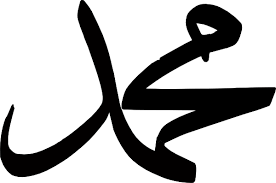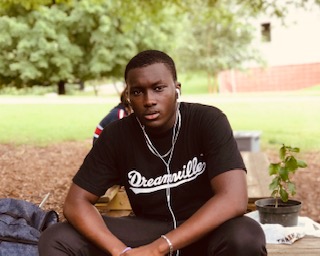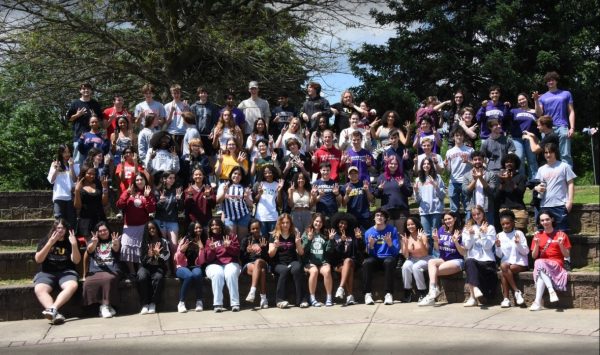Defined by my Name

My name, Muhammed, does not scare me. I accept it as a part of who I am. Not a single person in The Gambia has ever made me feel uneasy about my name. It was actually celebrated in my family. I never gave it much thought; I saw it as “just a name.” However, over time, I have realized that my name carries a tremendous weight. In today’s political climate, my name is branded with the words “terrorist,” “Radical Islamist,” “bomber,” and other derogatory labels. Now living in the US, I have to be aware that my name immediately gives people a false idea of who I am. While in The Gambia there is little to no baggage that comes with my name, in America and other Western nations it is a boulder lying on the shoulders of people with Muslim-sounding names.
Growing up in The Gambia, my name was as common as “Joe” or “Ben”, and it never occurred to me that it was potentially dangerous. Although I knew who I was named after and the history behind my name, I never considered it held great significance. I didn’t even go by it, as all my friends called me by my last name, “Baldeh.” In hindsight, this may have been disadvantageous, as I never grasped the importance of such a holy name. Besides, The Gambia is filled with Muhammeds, and Baldeh made me stand out. It fulfilled my innate human desire to be viewed as special. If being special was what I sought, it is something I definitely found after moving across the Atlantic to the United States.
The United States helped me appreciate my name much more than I did as a clueless child in The Gambia. Hearing remarks like “Oh” and “Interesting” whenever I mention my name quickly taught me about the assumptions people make about Muslim men. Of course, I do not possess the stereotypical outward appearance of a Muslim, such as the thick beard and olive skin.
Nonetheless, as soon as my name is shared, the same assumptions are made. Being a young black man in America already comes with its own implications, and, as a result, my name is one more thing for which I am guilty as I stand trial to the judgement of the United States. I remember a particular event which made me aware of the labels that are attached to my name. The summer of 2015, I had gone to visit my cousin in the United Kingdom. My cousin Sam and I were at the park with one of his friends, and a white girl, who was a bit older than we were, remembered to ask my name in the middle of our conversation about video games. “Muhammed,” I told her. The look that formed on her face was completely foreign to me, and her response was even more shocking: “What? Are you a terrorist or something?” She followed this comment with exuberant laughter and hysterical noises. I always saw terrorists on the news as evil people, murderers, and my dad warned me that they are set out to destroy the perception of Islam. Being viewed as one deeply hurt and highlighted the implications my name can have. I responded with an awkward “No,” before spending the next five minutes foraging my mind for an excuse to go back home. I settled on a tummy ache.
My battles with my name existed long before I became aware of society’s stance on it, long before labels such as “terrorist” and “extremist” were a constant attachment to the name. Even within my family, the Islamic roots of my name are a topic for several debates. My grandfather grew up Muslim in the extremely rural part of Eastern Gambia, but converted to Christianity in his adolescence, adopting the name Paul Louis before moving to Ireland for higher education. He later married a Christian woman of Jamaican descent, Theodora Fowlis, and they gave birth to a Christian baby, my dad, Henry Paul Batchi Baldeh. Now, coming from two Christian parents, one can imagine the shock when my father decided to return to Islam, especially from my grandmother’s side, as there were already generations of Methodist Christians. My dad naming his first-born son “Muhammed” after Islam’s prophet was not appreciated by his maternal side. On the other hand, it was seen as a victory by his paternal East-Gambian relatives. Now, however, it is celebrated, as it symbolizes the diversity in our family. The complex history of how my name, “Muhammed,” came into existence has deepened my appreciation for my name.
All in all, my name is a part of my identity, although many people have different views on it based on one’s upbringing. I know what my name represents, and I am proud of it. In today’s day and age, stereotypes run rampant, and outside perspectives tend to alter one’s perception of one’s self. We should learn to be confident in who we are and not be presumptuous in our interactions with others, letting them tell us who they are before telling them who they are.

Hey Beests! My name is Muhammed Baldeh, and I'm a Senior. This my second year at Sandy Spring and my first year with Wildezine. I enjoy writing about anything...






Ariel Voorhees • Dec 19, 2018 at 1:46 pm
Muhammed, I’m so glad that you contributed this essay to the Wildezine.